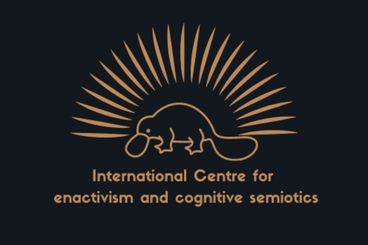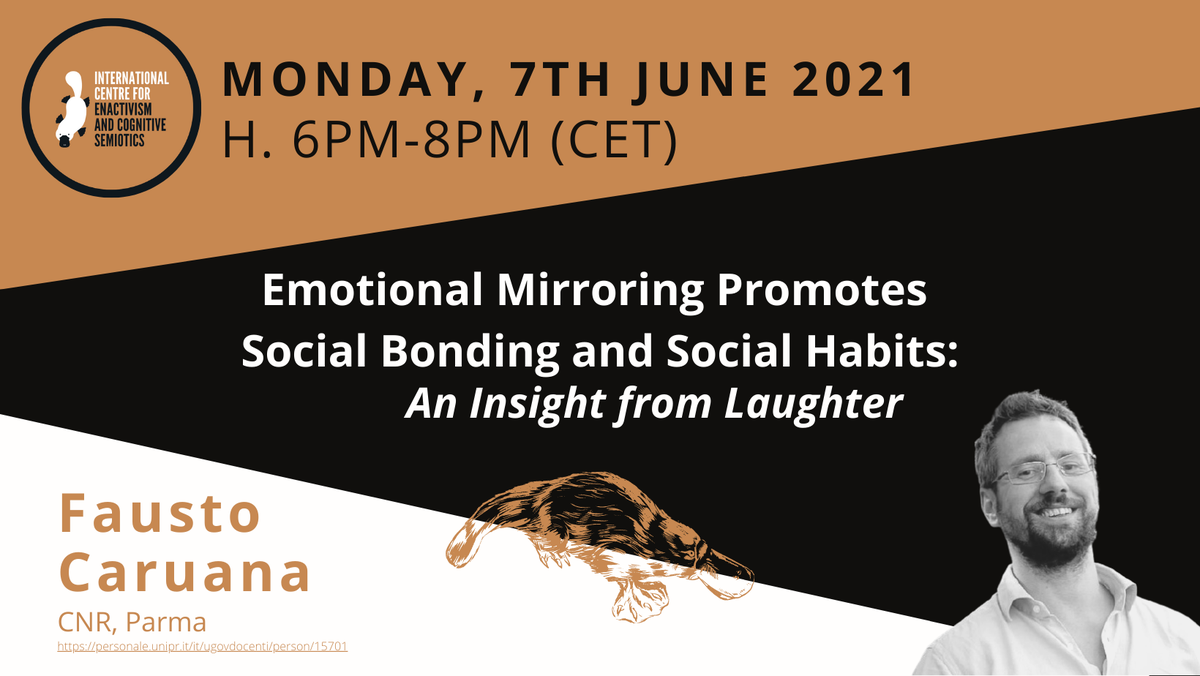Fausto Caruana, “Emotional Mirroring Promotes Social Bonding and Social Habits: An Insight from Laughter”
Seventh workshop in the series organised by the International centre for enactivism and cognitive semiotics in collaboration with the Knowledge and Cognition research centre.

-
Date: 07 JUNE 2021 from 18:00 to 20:00
-
Type: International Centre for Enactivism and Cognitive Semiotics

Emotional mirroring (EM) refers to the discovery that, when observing emotional behaviours - such as laughter -, there is a modulation of the activity in the same brainregions contributing to first-person emotional experience and behaviour. The standard interpretation of EM has been by and large inspired by phenomenology and its conviction that “with regard to cognition and action generally, perception is basic and primary”. My talk aims to take an alternative route, investigating the case of laughter EM through the lens of pragmatism - according to which “perception and thinking are only there for behaviour’s sake”. A pragmatist perspective suggests that mirroring other’s laughter in one’s own emotional system is not aimed at directly perceiving other’s emotions per sé but, rather, to affect the observer’s schemas of action, promoting future behaviours. Which behaviours? I speculate that, in the short term, a function of laughter EM is to facilitate emotional contagion and to boost affiliation and social bonding. In the long run, a further function of laughter EM is to shape one’s own socio-emotional habits on the basis of others’ emotional behaviour - a hypothesis reminiscent of Mead and Dewey’s social genesis of self. Such“pragmatist intervention” would (a) bring grist to the mill of a social-bonding theory of laughter, a naturalistic and evolutionary alternative to “cognitivist” classic philosophical theories of laughter and (b) pave the way for a pragmatist interpretation of emotional mirror, also beyond the case of laughter.
Fausto Caruana is a researcher of the Institute of Neuroscience of the Italian National Research Council (CNR), Parma. He is specialized in social, cognitive and affective neuroscience. His studies focus on the neural and the psychological mechanisms underlying emotions, empathy, mirror neurons and motor cognition. Beside his neuroscientific interests, he is actively pursuing theoretical research concerning the relationship between neuroscience and philosophy and, in particular, the theoretical aspects of embodied cognition, 4E cognitive science, social cognition, pragmatism and affective neuroscience.
Event is free! Download the flyer and click the platypus to join the meeting!